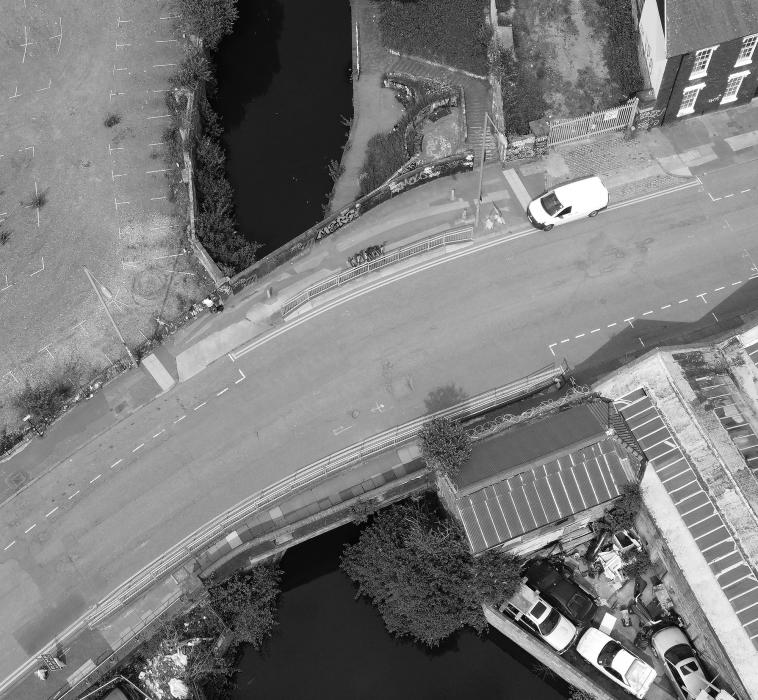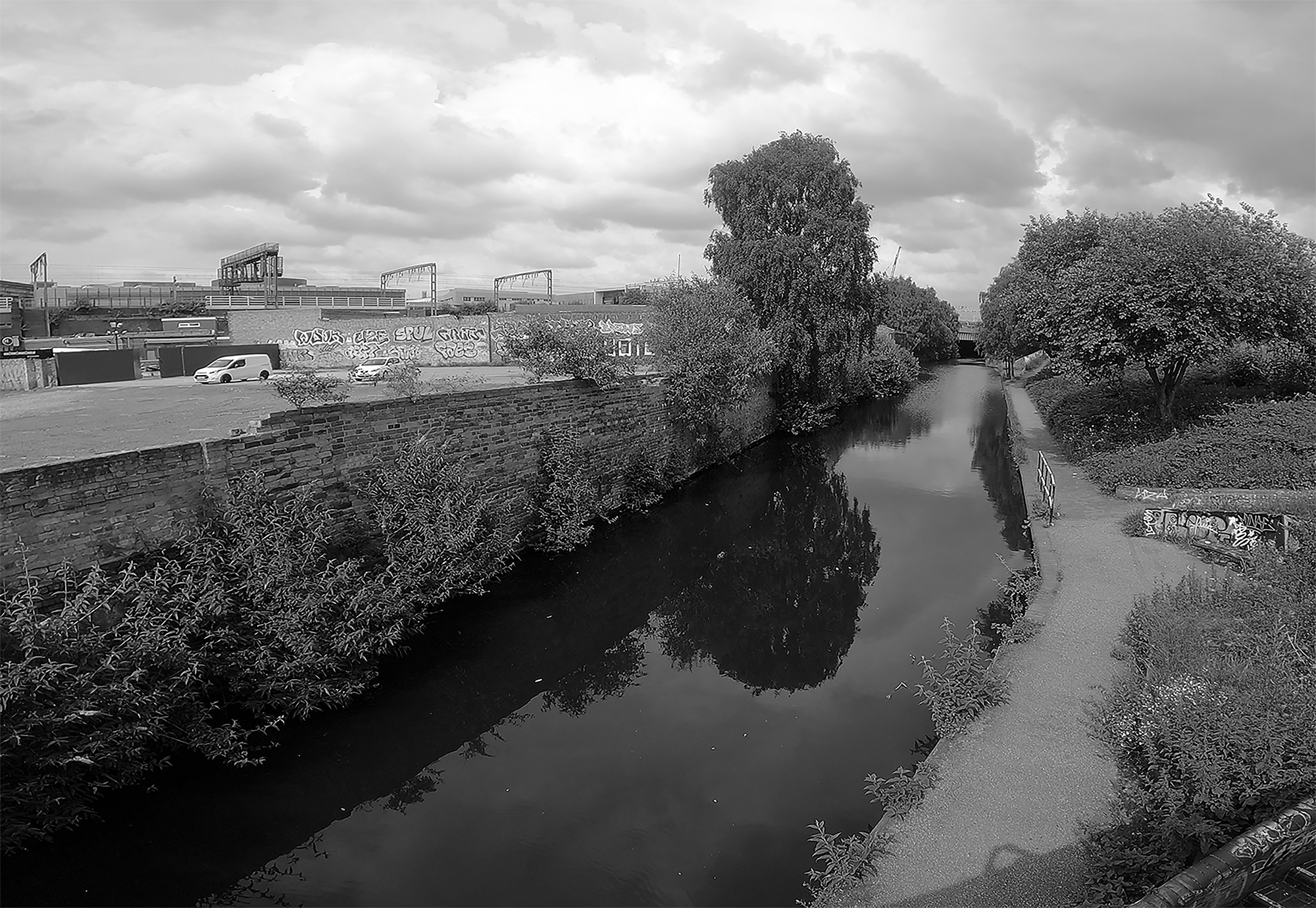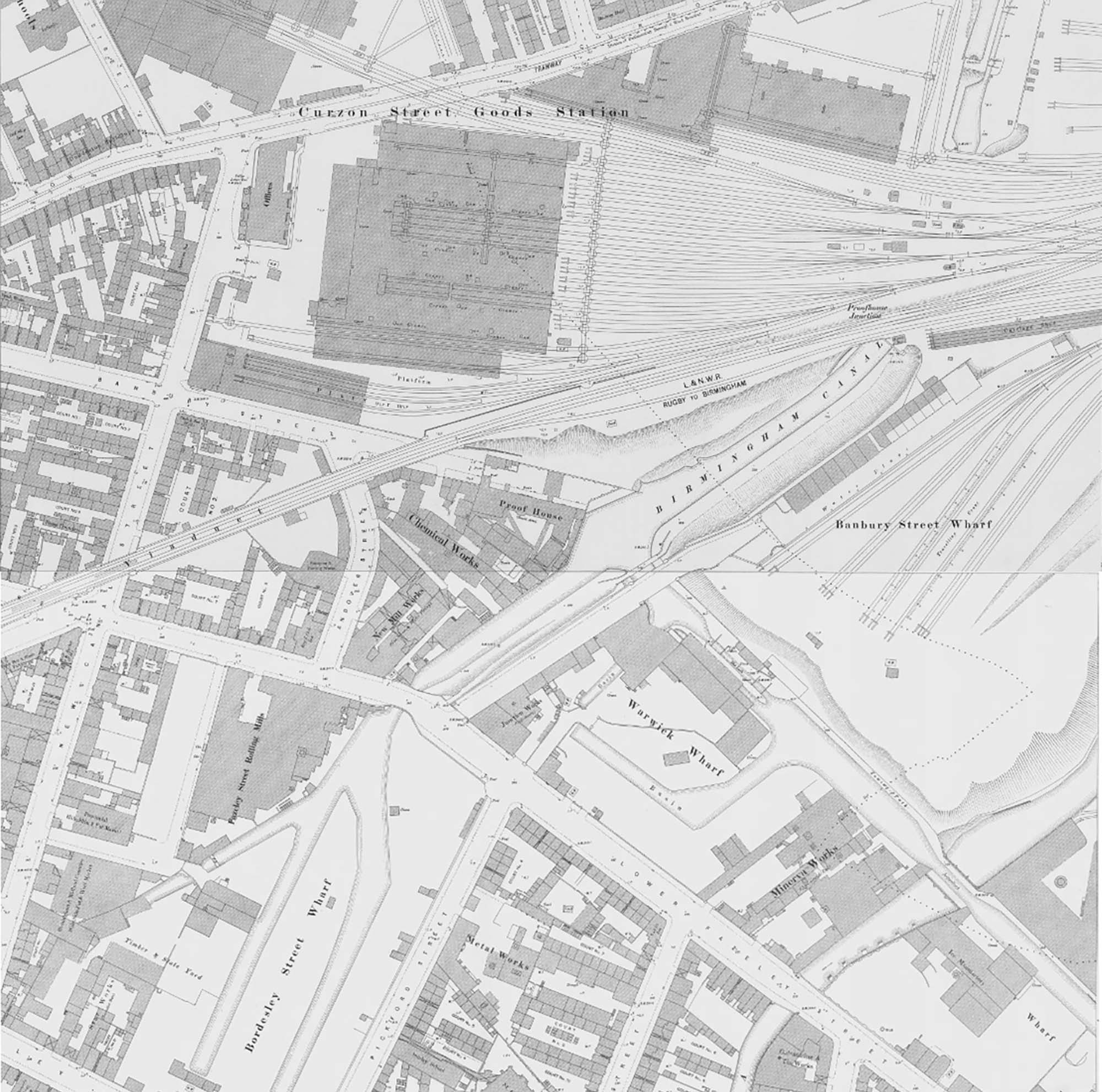

Age: 26
Sex: male
Date: 10 Aug 1901
Place: Fazeley Street, Birmingham
Thomas Hibbs was found dead in the Birmingham Canal near Fazeley Street with a fractured skull on the night of Saturday 10 August 1901.
He had been a London and North Western Railway policeman, also described as a railway detective, employed as a night watchman at the Curzon Street Goods Yard.
He had lived in Pleck Terrace, Park Road, Soho.
It was thought that he had surprised three coal thieves in the yard and had chased them off with his truncheon whilst blowing his whistle but when they realised that he was alone they attacked him and threw him unconscious into the canal where he drowned.
Three men were arrested and one charged but he denied hitting Thomas Hibbs on the head and the coroner said that all the evidence was third hand and dismissed the charge.
Thomas Hibbs had gone on duty at the goods' station at Curzon Street at 7pm and was see by the gate keeper at about 8pm on the railway near Curzon Street. The gate keeper said he noticed nothing unusual about his manner. He said that Thomas Hibbs had appeared quite sober and that he had always been known as a steady man who drank very little.
Thomas Hibbs was found shortly after, at 8.30pm, 300 or 400 yards away dead in the canal.
He was found by a man that lived in the neighbourhood who said that at about 8.30pm he had been bathing in the canal when his foot touched something soft that was lying at the bottom not far from the bank. He said that it felt like a bag and that he first thought that it might have been some animal that had been tied up and thrown into the canal.

He said that the size of the bundle induced him to examine it and that he then found that it was the body of a man and he shouted for help.
His cries for help were heard by a woman that had been standing on a bridge near Fazeley Street who had earlier seen a drunken man go down the canal side previously and thought that he must have fallen in and called for a man to help.
The man that she called then ran down the canal side and met the other man that had been bathing and who was partially dressed and they got the body out.
The second man then went off for a policeman and an ambulance was called for from Duke Street Police Station and the body of Thomas Hibbs was taken to the mortuary.

When Thomas Hibbs's body was examined he was found to have had a severe cut to the back of his head. It was noted that the wound could have been caused by a passing boat, but that at the time there had been very little traffic on the canal.
His handcuffs and staff were found in the canal near to the spot where his body was found along with a bag of coal, and a heavy piece of coal, such as might have been employed as a missile was picked up in the vicinity.
It was noted that it was a mystery as to how he came to be in the canal, it being noted that although the canal bank ran alongside the railway and could be easily reached by crossing the railway from the goods yard, the canal was not under his care and he would have had to have gone some distance from the scene of his duties to reach it.
It was noted that there was nothing in his family circumstances to suggest a desire to commit suicide.
It was said that in some quarters there had been the impression that a struggle had taken place on the canal bank close to the bridge, but the signalman, whose box overlooked the towing path stated that he didn't see or hear anything unusual on the Saturday night.
It was noted that the neighbourhood was very rough and that there had been a great deal of trouble there over the years with youths and others who trespassed on the line and threw stones at the trains. It was also noted that there was also a large quantity of valuable property stored in the goods yard.

It was initially noted that whilst there had been all sorts of rumours in circulation, and that the circumstances suggested that a crime may have been committed, that they were equally compatible with accident or suicide although the inquest later precluded the latter.
Of the three men that were arrested on suspicion of murder, it was heard that one of them had made a statement saying that he had been there when the struggle took place, but that he didn't take part in it, however, he was later taxed with that by the inspector, he admitted that he had made it up for fun, and that he had heard a similar confession by a man in Montgomery Street, but didn't know the man well enough to identify him.
The brother-in-law of one of the other men said that the man had made an incriminating statement to his father implicating the third man, but that other members of the family that had been in the house at the time said that they heard nothing of the kind.
Thomas Hibbs's post mortem gave his primary cause of death as a blow that had fractured his skull and the secondary cause as suffocation by water. The doctors added that the blow could not have been accidental or self-inflicted.
The coroner recommended the railway company employ two night watchmen because the area was dangerous.
It was noted during the inquest that one of the witnesses stated that they had received a threatening letter with blood smeared on it and containing a crude picture of a coffin with the warning, 'Your time is short'. The Coroner pointed out that the sending of menacing letters to anyone who had given evidence in legal proceedings was in itself a crime.
At the conclusion of his inquest on Thursday 29 August 1901, the jury brought in a verdict of wilful murder against some person or persons unknown.
see Dundee Courier - Monday 26 August 1901
see Falkirk Herald - Wednesday 14 August 1901
see Bromsgrove & Droitwich Messenger - Saturday 17 August 1901
see Derby Daily Telegraph - Friday 30 August 1901
see Coventry Evening Telegraph - Friday 16 August 1901
see Evesham Standard & West Midland Observer - Saturday 17 August 1901
see Dundee Evening Post - Friday 30 August 1901